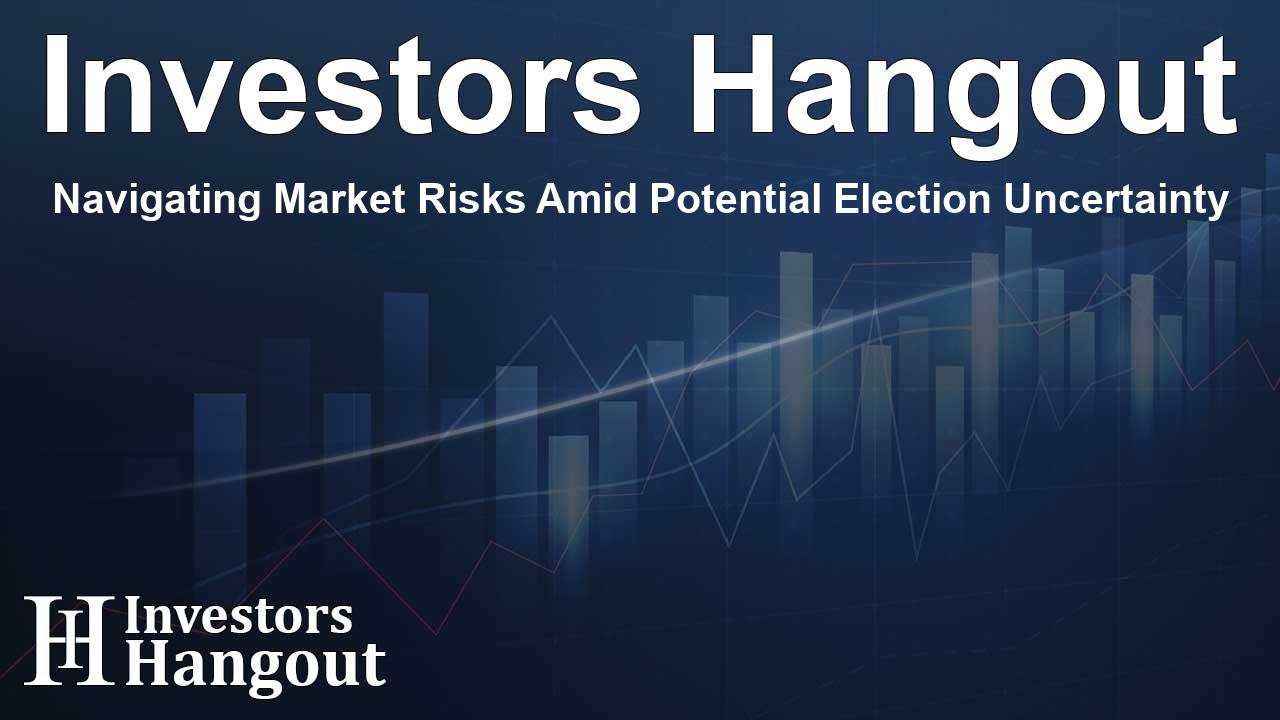Navigating Market Risks Amid Potential Election Uncertainty

Investment Climate During Election Uncertainty
As we approach a pivotal election in the U.S., investors are increasingly concerned about the potential ramifications of a contested outcome. This situation arises as a result of a tight race, where current polls indicate a nearly even split between the major candidates. With President Joe Biden's administration facing challenges, the stakes are high for both parties.
The Undercurrent of Political Tension
Recent polls suggest a competitive environment, with speculation that a close election result could lead to disputes similar to those witnessed in the past. Walter Todd, the chief investment officer at Greenwood Capital, articulates that the probability of challenges in a tight race is heightened. He anticipates that such uncertainty could lead to downward pressure on stock prices if the results remain ambiguous for an extended period.
Market Reactions to Political Events
The market has demonstrated resilience despite the looming political uncertainty, primarily driven by robust economic growth. The S&P 500, a key benchmark for U.S. equities, has reported significant gains, up by an impressive 21% this year alone. Strong earnings from various sectors have contributed to this rally, showcasing investor confidence despite the pending electoral process.
Indicators of Market Volatility
Investor sentiment surrounding the election has been reflected in the rise of the Cboe Volatility Index, commonly known as the VIX. This index, which gauges expectations for future volatility based on options pricing, has increased as the election date draws near. It currently stands at 20.9, indicating a moderate to heightened level of anticipated market turmoil. Many investors are using this index to gauge how much risk they might face in the coming weeks.
Tail Risk Concerns
Concerns about tail risks—unexpected events that could have dire consequences for the market—are also on the rise. The Nations TailDex Index, which measures such risks, has reached its highest level in a month, signaling that investors are beginning to adjust their strategies to prepare for potential shocks caused by an election mishap.
Volatile History in Election Years
Historical precedents indicate that contested elections can significantly influence market behavior. For instance, during the 2000 presidential election, uncertainty prevailed for a protracted period, causing the S&P 500 to decline by 5% from election day until the Supreme Court made a decisive ruling. This stark example serves as a reminder of the potential volatility that can accompany closely contested elections.
Expert Insights on Mitigating Risks
Financial experts suggest that investors should consider employing strategies to hedge against potential volatility stemming from electoral disputes. Michael Purves of Tallbacken Capital Advisors points out that attention should extend beyond the election day itself and consider potential market reactions in the weeks following the vote.
Options trading may also become a more popular method among investors looking to protect their assets during this uncertain time. Considerations for hedging often include using put contracts, which increase in value as stock prices drop, providing a safety net for portfolios exposed to potential downturns.
Strategic Asset Allocation
In this climate of uncertainty, diversifying investments across various asset classes may offer some protection. Financial strategists advocate for including defensive options like utility stocks and precious metals, such as gold, in investment portfolios. These assets traditionally offer stability and can serve as safe havens when market volatility escalates.
Conclusion: The Path Forward
As we draw closer to election day, the atmosphere is charged with both anticipation and anxiety. While markets have thrived off economic momentum, they remain vulnerable to the unpredictable nature of political contestation. Investors are advised to remain vigilant, adjusting their strategies as necessary to buffer against what could potentially be a turbulent period for stocks.
Frequently Asked Questions
What happens to the stock market during close elections?
The stock market often experiences increased volatility and uncertainty during close elections due to investor apprehension about potential disputes and outcomes.
How can investors mitigate risks associated with election uncertainty?
Investors can hedge against risks using options, diversify portfolios with defensive stocks, and include traditional safe-haven assets like gold.
Why does volatility increase around elections?
Increased political uncertainty, such as potential contested outcomes, leads to heightened investor caution, resulting in higher volatility as assets adjust to potential risks.
What is the Cboe Volatility Index?
The Cboe Volatility Index (VIX) measures market expectations for future volatility, derived from option prices. A rising VIX indicates increased market tension and anticipated swings.
Are all elections likely to lead to market disruptions?
Not all elections will cause severe disruptions; however, closely contested races tend to increase the likelihood of challenges and market reactions, as seen in past events.
About The Author
Contact Logan Wright privately here. Or send an email with ATTN: Logan Wright as the subject to contact@investorshangout.com.
About Investors Hangout
Investors Hangout is a leading online stock forum for financial discussion and learning, offering a wide range of free tools and resources. It draws in traders of all levels, who exchange market knowledge, investigate trading tactics, and keep an eye on industry developments in real time. Featuring financial articles, stock message boards, quotes, charts, company profiles, and live news updates. Through cooperative learning and a wealth of informational resources, it helps users from novices creating their first portfolios to experts honing their techniques. Join Investors Hangout today: https://investorshangout.com/
The content of this article is based on factual, publicly available information and does not represent legal, financial, or investment advice. Investors Hangout does not offer financial advice, and the author is not a licensed financial advisor. Consult a qualified advisor before making any financial or investment decisions based on this article. This article should not be considered advice to purchase, sell, or hold any securities or other investments. If any of the material provided here is inaccurate, please contact us for corrections.
